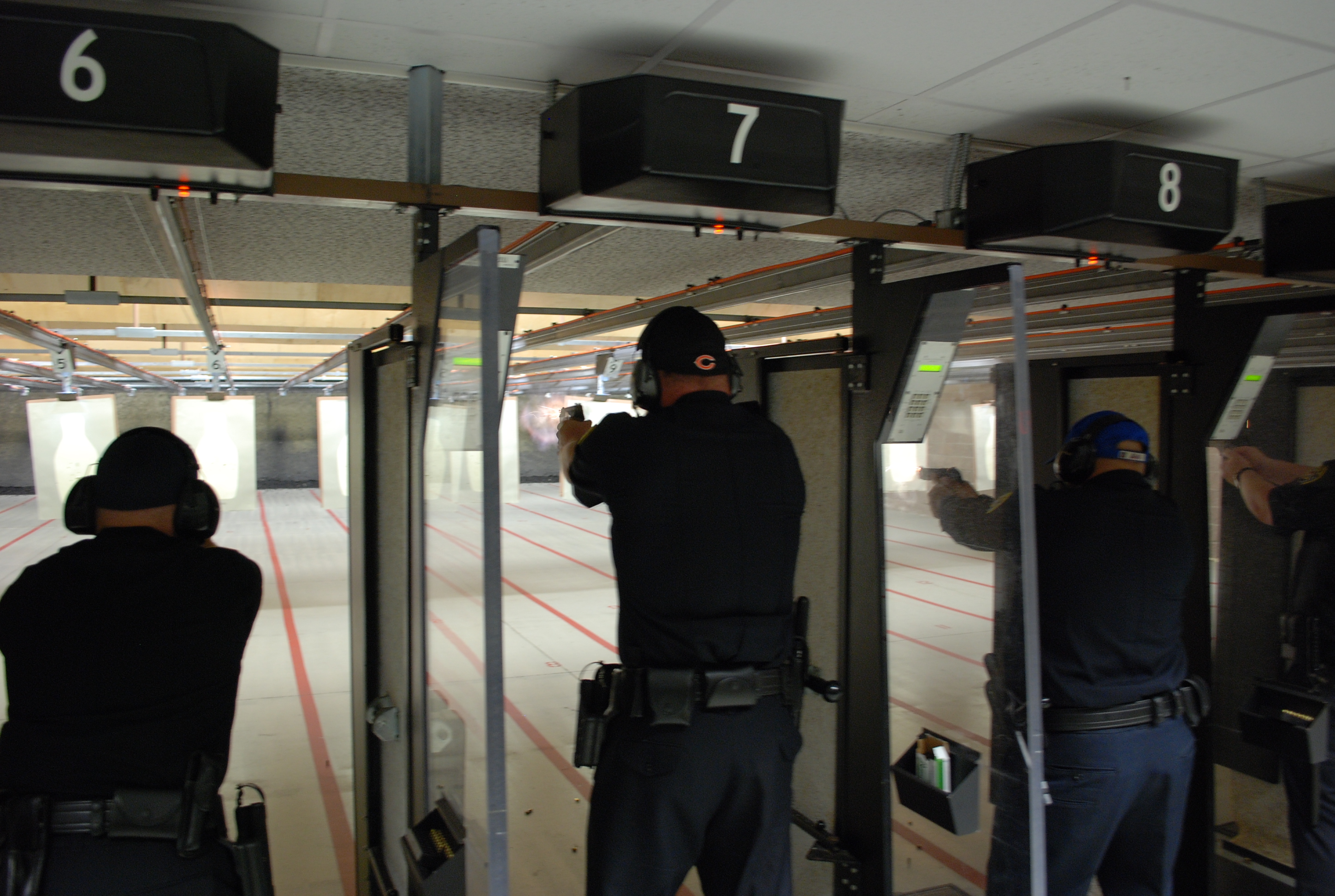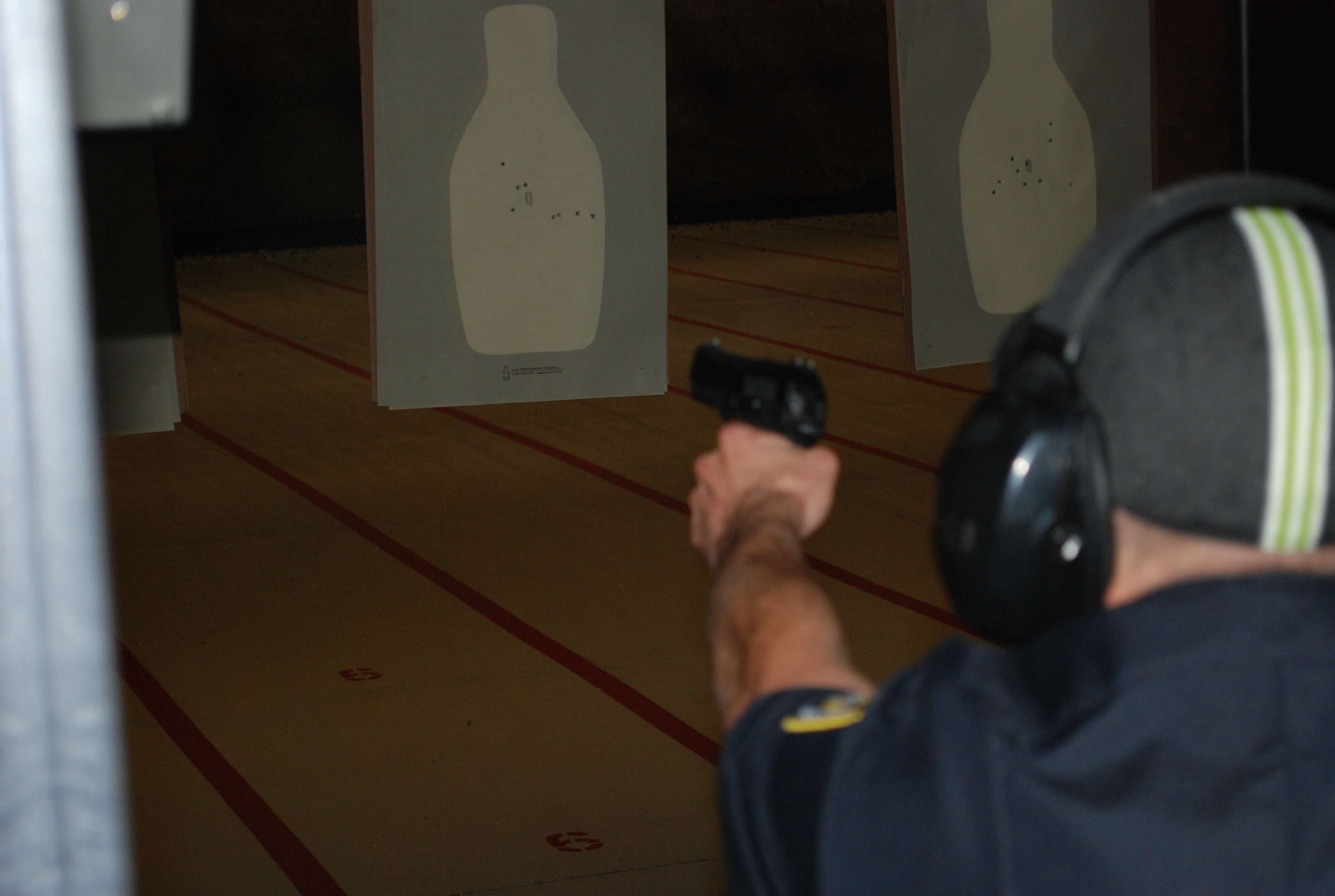Office of Operations, Security, and Preparedness
Law Enforcement Training Center (LETC)
James L. Ward, Esq., Director, Law Enforcement Training Center (LETC)
The LETC (Law Enforcement Training Center) is a Franchise Fund Enterprise Center whose budget and staffing levels are based on revenue generated by reimbursable services provided by the center. The Director of the LETC is responsible for the advancement of global VA training policies and practices, management and oversight of all residence and field training programs. The LETC is organized into four divisions; the Academic Programs Division, Technical Programs Division, Advanced Programs Division, and the Training Standards Division.
Academic Programs Division

Police trainees are qualifying on the firing range. Police trainees are required to qualify with the issued handgun before graduation.
This division provides oversight and management of the VA Basic Police Officer course and both the USAF Basic Police Officer and Security Officer courses. Responsibilities include; developing programs and curricula designed to prepare newly hired police officers to provide professional law enforcement services in a health care environment; conducting needs assessments of field operations to ensure currency and validity of training programs; and to provide guidance to facility managers and Police Service Chiefs concerning training practice and policy.
Technical Programs Division

Police trainees also practice firing during “low light” situations. This allows the police trainee to be familiar with firing a handgun during night time hours.
This division provides oversight and management of all in-residence and field training programs and policies for the use of department issued weapons, unarmed defense, physical training and tactical operations. Responsibilities include; development of all associated programs and curricula; conduct of specialized instructor courses; and continuous evaluation of improvements in law enforcement technology, methodologies and processes associated with these areas.
Advanced Programs Division
A VA police officer is giving class room instruction to a group of police trainees on the role of the VA police officer and situational awareness for Law Enforcement officers.
The Advance Programs Division develops comprehensive investigative and crime prevention instructional programs. Responsibilities include oversight and management of all specialty courses, and continuous evaluation of improvements in law enforcement technology, methodologies and processes associated with these areas.
Training Standards Division
Police trainees are doing physical training at the North Little Rock Arkansas training center. Police trainees are required to pass a physical fitness test before graduation.
The Training Standards Division provides evaluation, oversight and accreditation of in-residence and field training and instructional programs. Responsibilities include; internal and external quality control; statistical analysis; and monitoring of all programs to maintain accreditation standards.


















